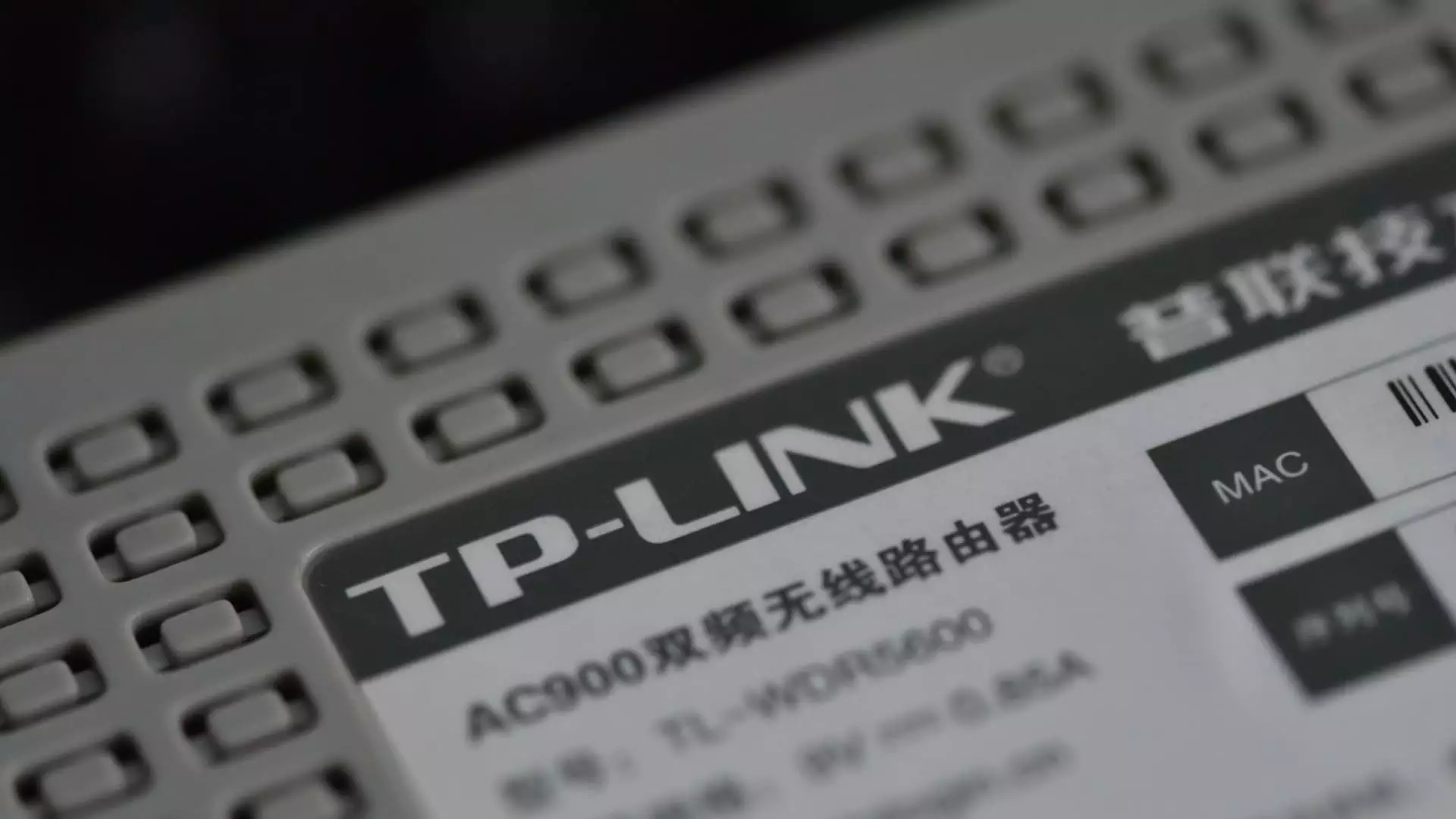As discussions around the TikTok ban intensify, drawing attention to Chinese influence within the technology sector, another less visible threat has emerged from an unexpected source: TP-Link routers. These devices, which rank among Amazon’s top-selling router brands, have come under scrutiny from U.S. lawmakers who express concern that they may serve as conduits for cyberattacks against American infrastructure or as tools for data theft. Experts emphasize the potential for the People’s Republic of China (PRC) to utilize such devices for malicious purposes, igniting an urgent call for investigations and preventive action.
The alert was notably raised when Representatives Raja Krishnamoorthi (D-IL) and John Moolenaar (R-MI) penned a letter to the Department of Commerce, describing “unusual vulnerabilities” associated with TP-Link products. The letter, initially reported by the Wall Street Journal, received significant attention for highlighting compliance with PRC law and its implications for national security. Alarmingly, the lawmakers argued that the prevalence of TP-Link routers in both governmental and personal contexts amplifies the risks, especially after evaluating the PRC’s track record of leveraging small office/home office (SOHO) routers for extensive cyber-attacks within the U.S.
A Precedent Worth Considering
As the alarm bells have sounded regarding TP-Link, many look back at the government’s actions against Huawei. In 2020, U.S. authorities mandated a “rip and replace” strategy aimed at eradicating Huawei equipment due to similar national security concerns. Given that TP-Link has claimed a staggering 65% share of the U.S. router market, Krishnamoorthi has urged for a similar approach, particularly for agencies directly involved in national security. His statements raise pertinent questions about the wireless infrastructure we rely on and whether it is prudent for the U.S. government to procure equipment from a company with ties to China.
The implications extend beyond federal agencies and defense sectors. As more individuals purchase TP-Link routers for home use, the potential for sensitive data breaches rises significantly. There is a growing consensus that the PRC may seek to exploit vulnerabilities to collect critical personal information, a notion echoed by Krishnamoorthi who expressed personal unease regarding such routers in domestic settings.
Investigating the Accusations
In response to these growing concerns, TP-Link Technologies has issued a defense, claiming they do not retail their products in the U.S. and refuting allegations of cybersecurity vulnerabilities. Their operation in the U.S. is managed by TP-Link Systems, which asserts that the majority of their routers for the U.S. market are manufactured in Vietnam—seeking to distance themselves from the criticisms stemming from their association with the Chinese government.
Yet, suspicions linger, bolstered by reports of TP-Link routers being linked to cyber incidents involving European officials and notable hacking scenarios like the Typhoon Volt attacks. As cybersecurity expert Guy Segal notes, the widespread usage of TP-Link routers among government and civilian sectors presents a legitimate security concern that cannot be ignored.
An effective response to this dilemma may not materialize easily, as the necessary consensus among lawmakers, security experts, and the public remains elusive. Any potential ban must consider the extensive integration of TP-Link products already established in both consumer and commercial marketplaces. While there are calls for immediate restrictions in the defense sector as a starting point, the reality of phasing out existing routers presents daunting logistical challenges.
The need for transparent communication regarding the risks associated with unencrypted network devices emerges as a crucial element in addressing these vulnerabilities. Experts like Matt Radolec emphasize that unencrypted communications put users at high risk, as sensitive information could be compromised. Greater awareness of such risks among consumers is essential, enabling them to make informed decisions about the devices they rely on for connectivity.
Ultimately, the discourse around TP-Link routers serves as a microcosm of the broader debate on technology, national security, and consumer privacy in the modern age. With threats becoming increasingly sophisticated and multifaceted, lawmakers will need to navigate an intricate path to balance security needs against practical implications for everyday users. As attention continues to focus on both immediate concerns and larger geopolitical factors, the stakes for protecting American infrastructure remain strikingly high. It is imperative for both individuals and institutions to remain vigilant in their cybersecurity practices, fostering a culture of awareness that empowers them to safeguard their digital lives against emerging threats.

